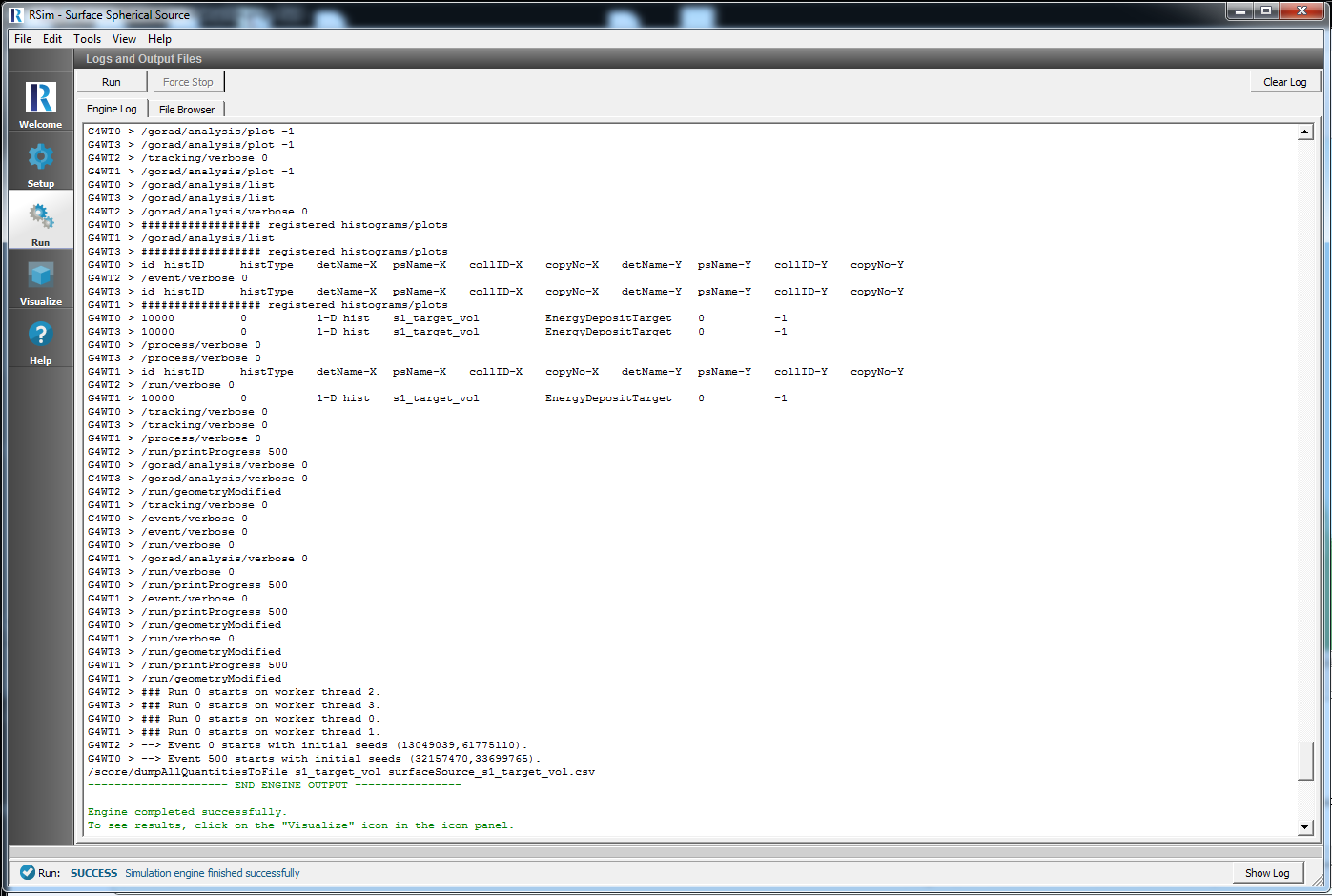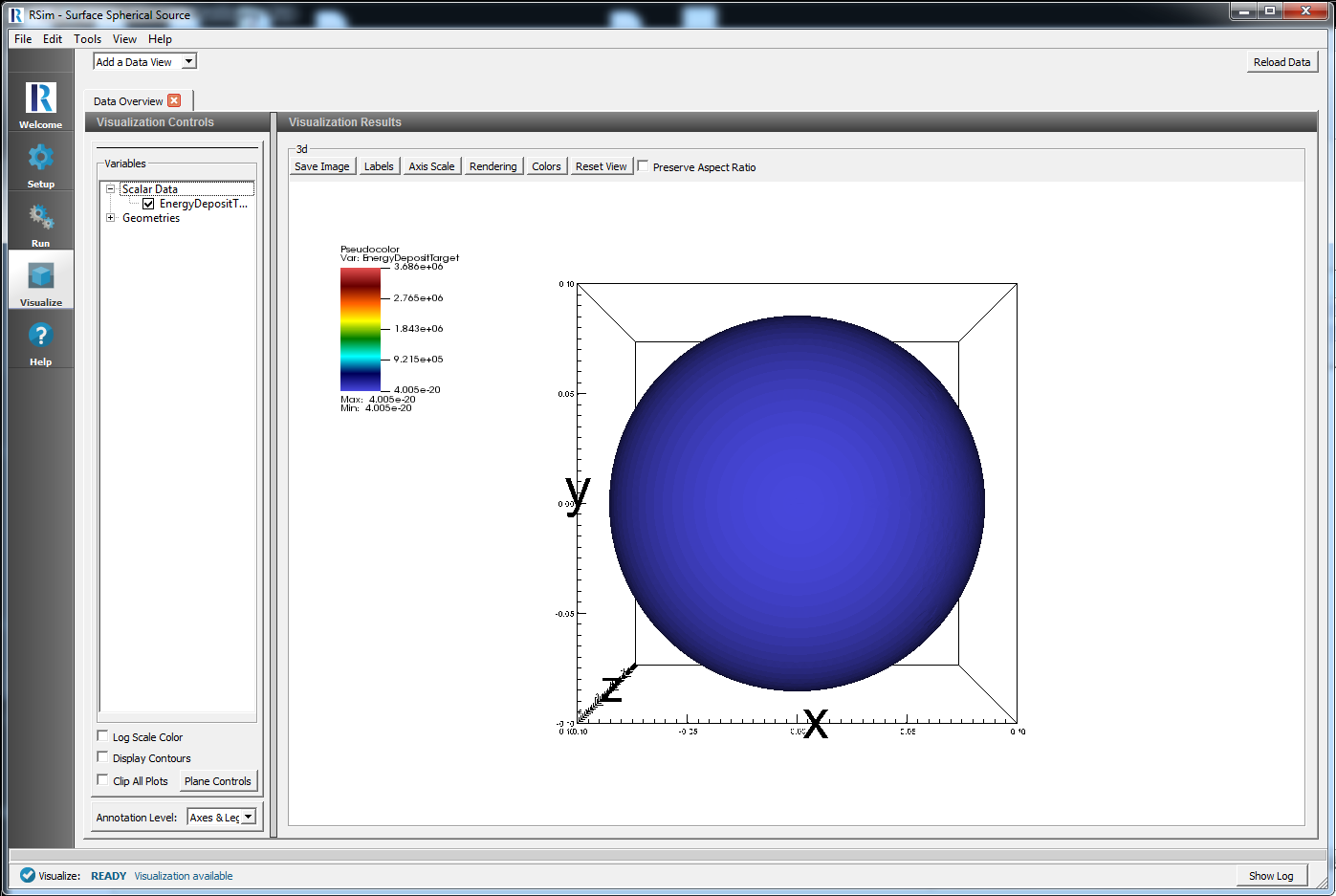Surface Spherical Source
Keywords:
-
radiation, GORAD
Problem Description
This problem illustrates how to set up a spherical surface source shooting particles into a sphere and measures the energy deposit in a sphere. This is a basic demonstration of RSim’s Monte Carlo Transport simulation capabilities.
Opening the Simulation
The surface particle source is accessed from within RSimComposer by the following actions:
- Select the New → From Example… menu item in the File menu.
- In the resulting Examples window expand the RSim for Basic Radiation option.
- Expand the Basic Examples option.
- Select Surface Spherical Source and press the Choose button.
- In the resulting dialog, create a New Folder if desired, and press the Save button to create a copy of this example.
All of the properties and values that create the simulation are now available
in the Setup Window as shown in surfacesourcesetupwin.
You can expand the tree elements and navigate through the
various properties, making any changes you desire. The right pane shows a 3D
view of the geometry, if any, as well as the grid, if actively shown.
Simulation Properties
This example demonstrates two physics features, and how CSG can be incorporated into RSim Simulations.
Under the Basic Settings tab the number of events to be simulated can be selected, as well as the simulation model. Right now the only supported model is gorad.
The particle source selected is a sphercial surface. In this case it simulates 1 electron per event. It shoots particles on a monoenergetic spectrum from zero to ninety degrees at an energy of 100.0 MeV.
The tally in this simulation is fluence.
Running the Simulation
After performing the above actions, continue as follows:
- Proceed to the Run Window by pressing the Run button in the left column of buttons.
- To run the file, click on the Run button in the upper left corner of the Logs and Output Files pane. You will see the output of the run in the right pane. The run has completed when you see the output, “Engine completed successfully.” This is shown in
surfacesourcerunwin.


